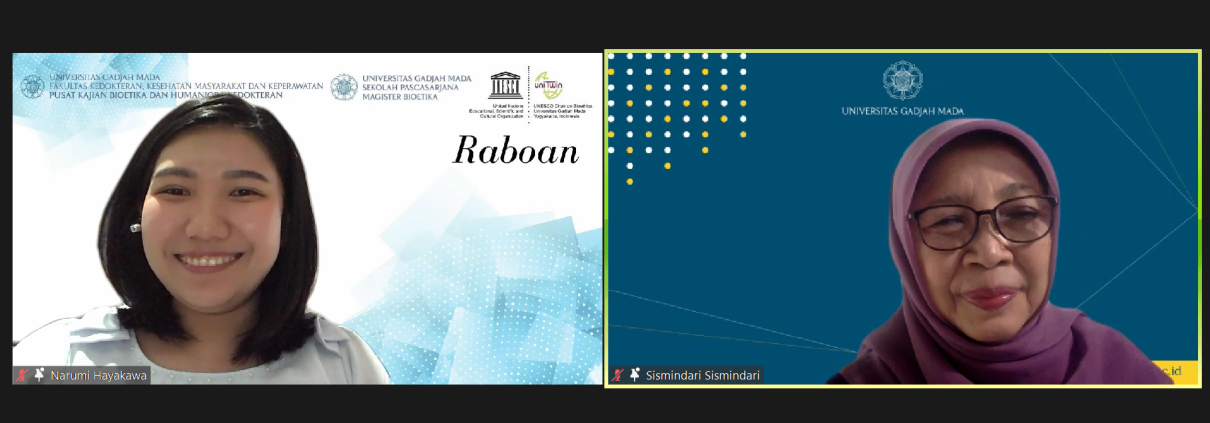Knowledge Level of Residents on Bioethical Principles [Raboan Discussion Forum]
The Center for Medical Bioethics and Humanities (CBMH FK-KMK UGM) held the Raboan Discussion Forum last Wednesday (12/7). The topic discussed in the forum was “Knowledge Level of Residents on Bioethical Principles.” The speaker for the forum was dr. Narumi Hayakawa while the moderator was Noviyanti Fahdilla, S.Tr.Keb, MPH.
Research conducted by Narumi shows that the level of knowledge of bioethics among the Indonesian population still needs to be improved. The study illustrates that most of the residents have a moderate level of knowledge of bioethics, indicating a challenge in dealing with ethical issues in medical practice.
Bioethics is a science that discusses ethical principles relevant to medicine and health. These principles include “Respect for Autonomy,” “Beneficence,” “Non-Maleficence,” and “Justice.” Bioethics is essential for residents because they not only have to face education and training in the medical field but are also obliged to conduct research and medical services.
According to the study results, most residents claimed to have experienced bioethics while studying at the undergraduate level. Nonetheless, the lack of understanding of the principle of “Justice” is one of the highlights, and only the “Respect for Autonomy” principle is most familiar to the population. This indicates the need for more understanding of bioethical principles to improve the quality of medical services.
Research also shows that many residents are reluctant to discuss ethical dilemmas and prefer to consult with colleagues. This is due to the strong hierarchical arrangements in educational institutions and medical practice. The important role of the center or resources that can help residents in solving bioethical problems is also enlightenment in this research.
To increase the understanding of bioethics in the population, recommendations have been put forward. Among them are deepening the understanding of bioethical principles, conducting regular discussions regarding ethical issues in medical services, and providing centers or resources that can assist residents in dealing with ethical dilemmas.
Through increasing understanding of bioethics, it is hoped that residents will be better prepared to face complex ethical issues in medical practice. Improvements in the knowledge of bioethics are also expected to positively impact medical services and adherence to professional ethics in the medical profession in Indonesia.



